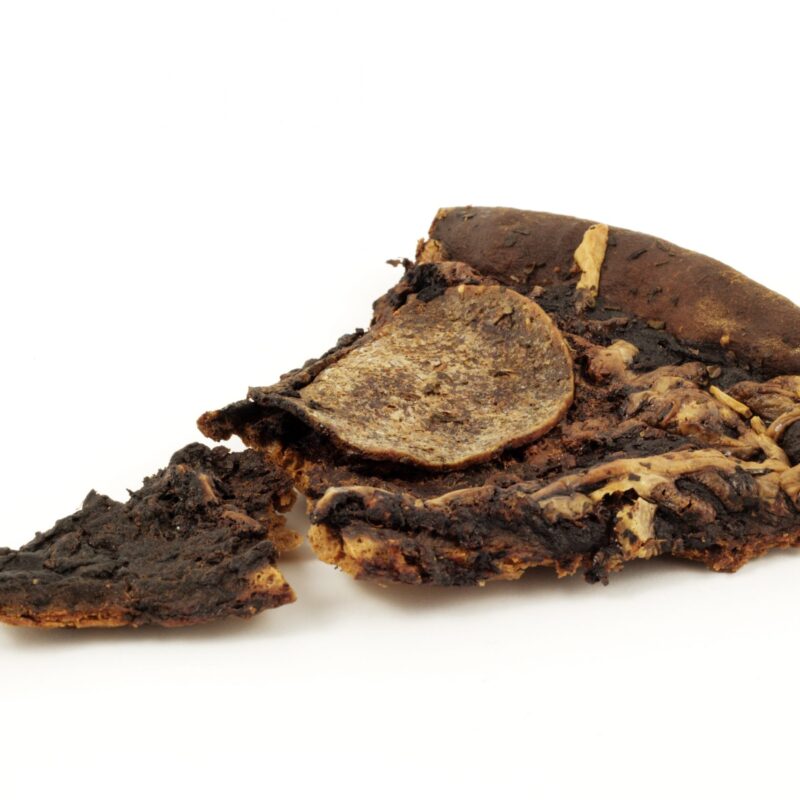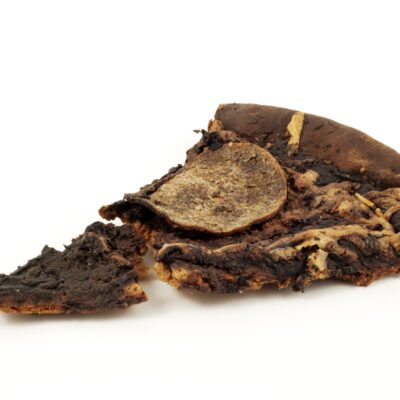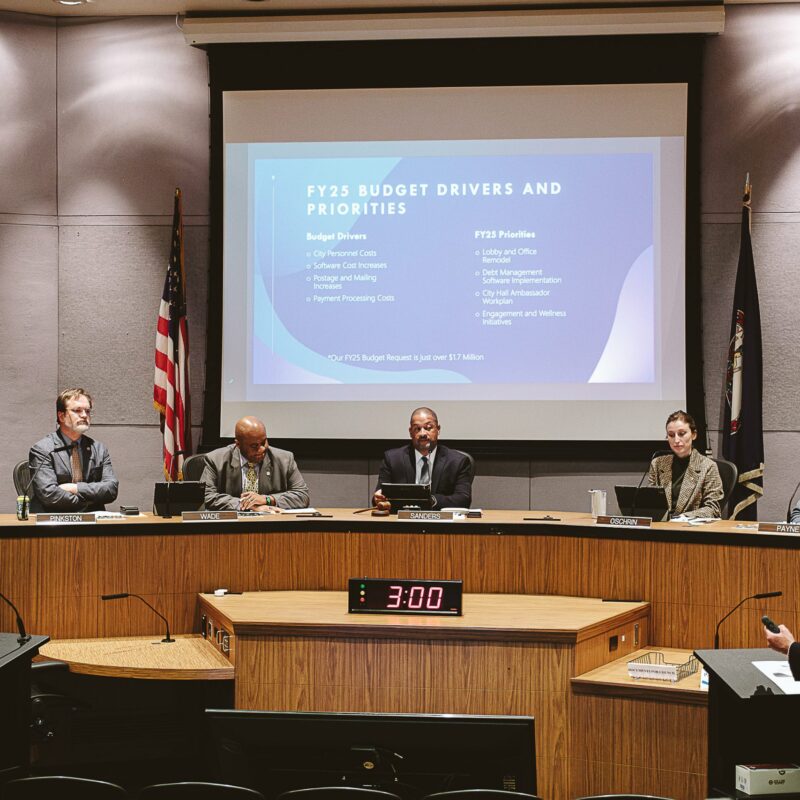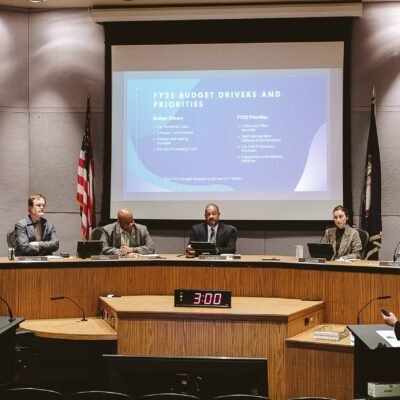The industrial kitchen at Charlottesville High School is a comfortable fit for a large-batch cooking session with city school kitchen managers. Martha Stafford, owner of the Charlottesville Cooking School, has her sofrito recipe on hand, and shows the managers how she cooks green bell peppers, onions and cloves of garlic together.
|
A black bean and brown rice taco, tested by students and parents as a new vegetarian lunch option in city schools, will make its debut in the next two months. |
The training session is something of a special occasion. Stafford’s black bean and brown rice taco, tested by students and parents as a new vegetarian lunch option in city schools, will make its debut in the next two months.
Stafford, who created the recipe, says the meal received a “very positive response.” According to premilinary data, about 91 percent of all tasters gave the recipe a thumbs up. Negative feedback stemmed largely from students’ lack of familiarity with ingredients like black beans.
City schools have already introduced fresh fruits and vegetables in lunch lines, and the movement to improve the health of students has taken off. The School Health Advisory Board (SHAB) is revising city schools’ one-page Wellness Policy, designed to address student and faculty nutrition and fitness, says SHAB Chair Ivana Kadija.
“What we are looking at is being more clear, as a division, about what the expectations are for nutrition and physical activity,” says Kadija, who adds that the majority of SHAB members would like to see the Wellness Policy address student access to junk food. SHAB would also like to involve the community in the process, as schools in Williamsburg have done.
Schools dietician Alicia Cost says parents are excited to see changes in the lunch menu and are pushing to have the taco as a main entree in the city’s rotation.
“When we taste-tested at the elementary level, we were worried about peer pressure,” says Cost. “Parents and volunteers were looking [at plates] to see how much was consumed. That was really what we were looking for.”
With the taco success under their belts, Stafford and Cost will expand the vegetarian school lunch options with a new recipe: butternut squash soup.
“It’s a recipe that I have used for teaching, because we get really good butternut squash here. There is an abundance of it, it can be stored and it’s delicious,” says Stafford, who adds that she is trying to streamline the recipe to make it easy to implement in school kitchens.
Kadija applauds Stafford’s effort. “I think it’s tremendous that the division has been able to do this within the limitations of the school’s food system,” she says.
The soup will be subject to taste testing in March, which is also National Nutrition Month. If successful, it will be offered in school cafeterias starting next fall.
In the meantime, Cost says she is looking to maximize the success of Stafford’s taco recipe.
“We have tweaked the recipe so we could do it year-round with vegetables that [Stafford] has chosen,” she says. Kadija says that although these recipes are progress, the community needs to help support city schools “in figuring out systemic issues that are standing in the way of every meal being cooked from scratch.”
/beans.jpg)





